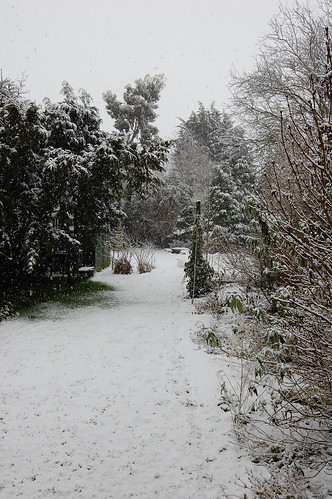Computing in the cloud is great: you get to keep all your data somewhere online, which means that you – and anyone you authorise – can get at it wherever you are.
But there can be problems. One is of finance – in these somewhat tricky economic timed, companies are burning out, and taking your data with them. There is also, however, technological problems. We all know we should take regular backups of our own stuff, don’t we? And surely those startups with whom we trust are stuff do the same…
Ma.gnolia users must be feeling pretty bummed right now. The social bookmarking service (think Delicious but, er, slightly different). At the moment, their homepage displays a rather bleak message in black text on a plain white background:
So far, my efforts to recover Ma.gnolia’s data store have been unsuccessful. While I’m continuing to work at it, both from the data store and other sources on the web, I don’t want to raise expectations about our prospects. While certainly unanticipated, I do take responsibility and apologize for this widespread loss of data.
Oh dear. All those bookmarks people had been accumulating over the years, with their descriptions and tags…gone. And it doesn’t seem like they are going to be back, either.
For those lucky enough to have backed up their bookmarks from Ma.gnolia, there might be some good news coming out of the open source project. Let’s hope so.
There are a couple of issues that this raises. One is around the efficacy of hosting data in the cloud. If Ma.gnolia weren’t backing up bookmarks, what about some of the webmail providers? Is Google properly safeguarding our documents? Can we trust PBwiki with our collaborative material? What about all the data inside social networks and Ning communities?
I’d think that we probably can, still, but don’t take any chances. Back up everything you have online locally. Most sites let you export content to a file, those that don’t might mean you have to undertake a tedious cop-and-paste exercise. I’ve started with my bookmarks, which are thankfully hosted with Delicious – if you do too, the export tool is here.
The second issue is whether there is much of a future in social bookmarking. Mashable questioned it last year. I disagree and still believe that social bookmarking is an inherently useful tool to have available. Not least because it is a great introduction to the core social web technology for newbies: tagging, sharing, RSS, mobility – it’s all there and is easily understood, especially in terms of its usefulness.
What appears to have happened at Ma.gnolia is an administrative cockup, which has broken the service irreparably. I don’t think it spells the end of social bookmarking as we know it.
Update: Wired notes that Ma.gnolia folk are using Friendfeed to try and repopulate their database!

